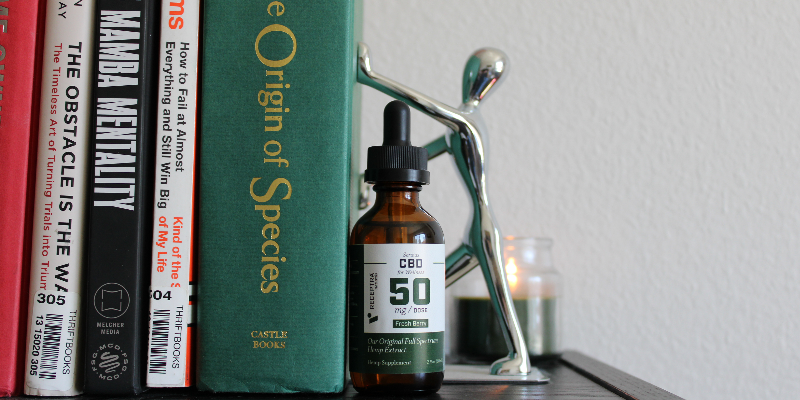Have you considered using CBD oil but have concerns about if CBD is addictive?
Let’s answer that question along with a few others, just to make sure you feel safe and informed:
-
- Is CBD addictive?
-
- What is CBD?
-
- Does CBD with THC cause addiction?
-
- Why is there THC in CBD?
-
- How does CBD work?
Is CBD Addictive?
The World Health Organization (WHO) has stated that CBD does not induce physical dependence and is not associated with abuse potential. According to the WHO, “In humans, CBD exhibits no effects indicative of any abuse or dependence potential…. To date, there is no evidence of public health-related problems associated with the use of pure CBD.”
What is CBD?
CBD, short for cannabidiol, is a compound found primarily in the flowers and leaves of the Cannabis sativa plant, or hemp plant. It’s one of the over 100 powerful cannabinoids found in hemp and is known for supporting body and mind in various ways, such as imparting a feeling of relaxation and calm focus or helping with pain. Unlike THC, which is the major active cannabinoid in marijuana, CBD does not have the same interactions with receptors in the body, which means it won't get you high.
Does CBD with THC cause addiction?
CBD derived from hemp plants contains very little THC (less than 0.3% in the United States) and therefore should not put you at risk of developing a dependency or having withdrawal concerns when taken in normal doses. It is important that the CBD you use is from a reliable source with transparent third-party testing, so you always know exactly what you are getting.
Along with hemp, CBD can also be found in marijuana which is a form of the cannabis plant but contains a much higher content of THC than hemp. There is some research demonstrating the formation of dependence on THC resulting in irritability, mood and sleep difficulties, restlessness and physical discomfort. THC and CBD do not interact with receptors the same way in the body and therefore CBD does not have that mechanism for dependence.
While CBD doesn’t produce the same addictive effects as THC, it is possible that someone who takes CBD will experience a positive change in sleep, relaxation and pain relief. Stopping the use of CBD could cause those things to revert back to the way they were before.
In an interview with Popsugar, Ben Thrower, MD, medical director at Andrew C. Carlos MS Institute, explained that in his professional experience, he hasn't found CBD to be addictive. Many of his patients have experienced a calming effect and improved sleep when using CBD. "I suppose one could become mildly psychologically dependent on those effects.
Why is there THC in CBD?
“Full-spectrum” is the concept of utilizing all of the cannabinoid compounds in the whole plant. CBD is only one of over 100 known cannabinoids found in the cannabis plant. And there are more than 400 other beneficial plant compounds including minerals, terpenes, flavonoids, chlorophyll, fatty acids, and others that are still being discovered.
Many of these are dependent on each other for efficient use by the body. This concept is called the “entourage effect” and is the biggest differentiator between full spectrum and other types of CBD, which do not contain these other beneficial compounds. The synergistic effects of all of these compounds enhance the benefits of CBD, which is less effective in isolated form.
How does CBD work?
The body’s natural endocannabinoid system (ECS) plays an important role in supporting overall health and wellbeing. All vertebrates have an endocannabinoid system that serves the purpose of helping the body establish and maintain balance for optimal health and wellness.
CBD interacts with the body’s natural endocannabinoid system by responding to cannabinoid receptors, and the primary cannabinoid receptors in the body are CB1 and CB2. These receptors are found in virtually every organ in the body and throughout all bodily systems including the brain. Your body naturally produces its own endocannabinoids which work holistically to maintain homeostasis in the body.
A healthy endocannabinoid system can mean that you may sleep better, your moods are more regulated, your nervous system processes pain normally, your memory works more clearly, and your digestive system functions properly.

